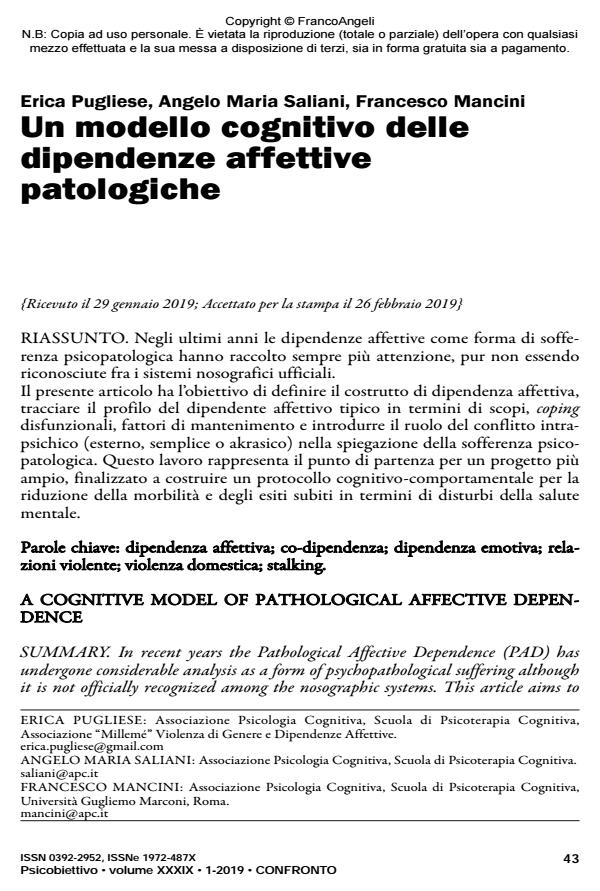A cognitive model of pathological affective dependence
Journal title PSICOBIETTIVO
Author/s Erica Pugliese, Angelo Maria Saliani, Francesco Mancini
Publishing Year 2019 Issue 2019/1
Language Italian Pages 16 P. 43-58 File size 184 KB
DOI 10.3280/PSOB2019-001005
DOI is like a bar code for intellectual property: to have more infomation
click here
Below, you can see the article first page
If you want to buy this article in PDF format, you can do it, following the instructions to buy download credits

FrancoAngeli is member of Publishers International Linking Association, Inc (PILA), a not-for-profit association which run the CrossRef service enabling links to and from online scholarly content.
In recent years the Pathological Affective Dependence (PAD) has undergone considerable analysis as a form of psychopathological suffering although it is not officially recognized among the nosographic systems. This article aims to define the construct of PAD, to track the profile of the affective dependent using a framework of goals, beliefs, dysfunctional behaviors, maintenance factors and intrapsychic conflicts (external, simple or akrasic) as an explanation to the psychopathological suffering. This work is part of a broader project aimed at building a cognitive-behavioral protocol that reduces morbidity and the suffering of patients with PAD.
Keywords: Affective Dependence; Co-Dependence; Emotional Dependence; Abusive Relationship; Domestic Violence; Abusive Partner.
- When the War Is in Your Room: A Cognitive Model of Pathological Affective Dependence (PAD) and Intimate Partner Violence (IPV) Erica Pugliese, Angelo Maria Saliani, Oriana Mosca, Fridanna Maricchiolo, Francesco Mancini, in Sustainability /2023 pp.1624
DOI: 10.3390/su15021624
Erica Pugliese, Angelo Maria Saliani, Francesco Mancini, Un modello cognitivo delle dipendenze affettive patologiche in "PSICOBIETTIVO" 1/2019, pp 43-58, DOI: 10.3280/PSOB2019-001005